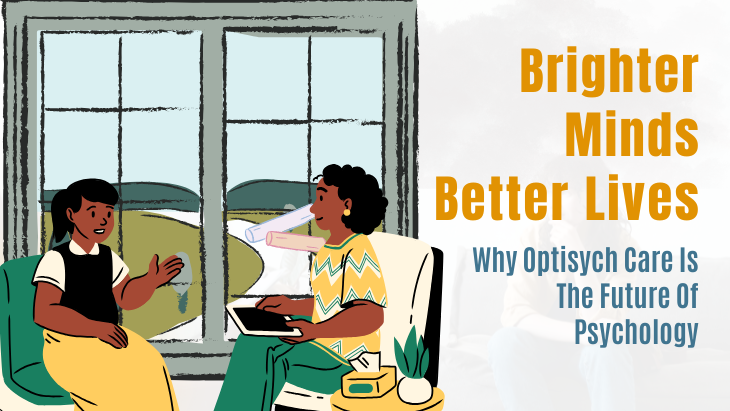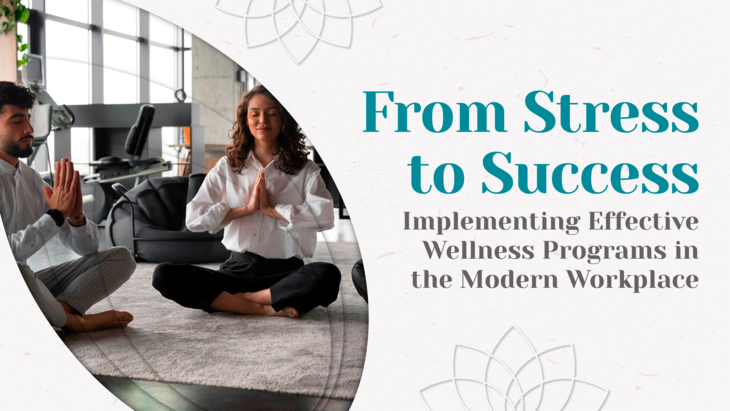In today's world, prioritizing mental wellness is crucial for a balanced and fulfilling life. This guide explores various therapeutic approaches, their principles, benefits, and suitability for diverse needs. From traditional talk therapy to alternative therapies like art and music therapy, body-centered therapies like yoga and dance therapy, and specialized therapies like family and group therapy, we delve into the different types of therapy for mental wellness. We also touch on technology-based therapies, holistic approaches, and emerging trends, and address the stigma surrounding therapy. Join us in navigating the world of therapy and promoting mental wellness.
Introduction to Therapy
Understanding the significance of mental wellness is crucial as it sets the stage for exploring various therapy options. Therapy, encompassing a diverse range of interventions, plays a pivotal role in promoting psychological health and addressing emotional challenges. Whether it's managing everyday stressors or navigating through traumatic experiences, therapy offers a supportive environment where individuals can delve into their thoughts, feelings, and behaviors, fostering personal growth and resilience. It serves as a guiding light on the path to emotional well-being, providing invaluable support and tools for navigating life's ups and downs.
Exploring Talk Therapy: Insights and Healing
Talk therapy is a cornerstone of psychological support, fostering a safe space for individuals to express their thoughts, feelings, and experiences. Within this therapeutic setting, clients engage in open dialogue with a trained professional, exploring various facets of their lives in a supportive environment. Techniques such as cognitive-behavioral therapy (CBT) target specific patterns of thinking and behavior, empowering individuals to recognize and challenge negative thought cycles. Meanwhile, psychoanalysis delves into the subconscious, unraveling underlying motivations and unresolved conflicts that may influence current behaviors and emotions.
Through the dynamic exchange of conversation, talk therapy facilitates self-discovery and personal growth. Clients gain deeper insights into their own psyche, enhancing their understanding of how past experiences shape present perceptions and behaviors. With the guidance of a skilled therapist, individuals develop coping strategies, build resilience, and cultivate healthier ways of navigating life's challenges.
Creative Therapies: Art and Music Healing
Alternative therapies provide valuable avenues for self-expression and healing beyond traditional talk therapy. Art therapy, for instance, taps into the transformative potential of creativity to facilitate emotional release and self-discovery. Through activities like painting or sculpting, individuals can delve into their innermost thoughts and feelings in a non-verbal, intuitive manner, allowing for exploration and expression beyond the constraints of language.
Similarly, music therapy harnesses the inherent therapeutic qualities of music to foster relaxation, emotional expression, and communication. Whether through listening, playing instruments, or composing, individuals can engage with music in ways that resonate with their emotions and experiences. This holistic approach acknowledges the profound connection between mind and body, utilizing the universal language of music to address psychological, emotional, and even physical well-being.
Mind-Body Healing: Exploring Body-Centered Therapies
Body-centered therapies offer a holistic approach to healing by acknowledging the profound link between the mind and body. These practices prioritize the integration of physical sensations and emotional experiences, aiming to foster a deeper connection within oneself. Techniques like yoga and meditation emphasize mindfulness, encouraging individuals to be fully present in the moment and to tune into their breath. Through these practices, people can cultivate inner peace and resilience, gaining a better understanding of their thoughts, feelings, and bodily sensations.
Dance therapy is another embodiment of body-centered therapies, employing movement and expression to facilitate emotional processing and restore equilibrium. By engaging in various movements, individuals can explore and release pent-up emotions, allowing for greater self-expression and insight. This somatic approach recognizes that the body stores emotional energy and utilizes movement as a means of releasing tension and promoting holistic well-being. Overall, body-centered therapies offer powerful tools for individuals to reconnect with themselves, promoting both physical and psychological health.
Specialized Therapies: Enhancing Relationships and Individual Growth
Specialized therapies target distinct facets of interpersonal dynamics to foster healthier relationships and individual well-being. Family therapy, for instance, concentrates on enhancing communication and resolving conflicts within familial units. By delving into the intricate dynamics at play within families, therapists facilitate constructive dialogue and problem-solving, ultimately nurturing more harmonious relationships. Through techniques like systemic analysis and structured interventions, family therapy aims to fortify bonds and promote understanding among relatives, leading to enduring positive changes in familial dynamics.
On the other hand, group therapy provides a supportive setting for individuals grappling with similar challenges to come together and share their experiences. Within this communal environment, participants offer mutual support, empathy, and insights, creating a space for collective healing and growth. Through group discussions, activities, and guided exercises, members gain valuable perspectives, develop coping strategies, and cultivate a sense of belonging, reinforcing their resilience and fostering personal development within a supportive community.
Technology-Based Therapies
As technology evolves, so does the landscape of therapy. With the rise of online therapy platform and virtual sessions, therapy has become more accessible than ever before. Teletherapy breaks down barriers like geographical distance or mobility issues, allowing individuals to connect with therapists from the comfort of their own homes.
Moreover, the advent of mobile apps and online resources has revolutionized self-care. From mindfulness practices to mood tracking tools, these resources empower individuals to take control of their mental health journey on their own terms. With therapy at your fingertips, you can engage in meaningful practices anytime, anywhere, making mental wellness a part of your daily routine.
Holistic Therapies: Mind-Body-Spirit Wellness
Holistic therapies take a comprehensive view of health, recognizing the deep connection between mind, body, and spirit. Rather than treating symptoms in isolation, these approaches aim to address the underlying causes of imbalance, promoting overall well-being and vitality. Integrative therapy draws from various therapeutic techniques, blending them to create personalized treatment plans that cater to individual needs. By considering the interplay of physical, emotional, and spiritual factors, holistic therapies offer a holistic approach to healing that encompasses the entirety of a person's being.
Mindfulness-based therapies, such as mindfulness-based stress reduction (MBSR) and dialectical behavior therapy (DBT), are prominent examples of holistic approaches to mental wellness. These therapies emphasize the importance of present-moment awareness and acceptance, guiding individuals to cultivate a deeper understanding of their thoughts, feelings, and sensations. By fostering mindfulness skills, individuals learn to navigate life's challenges with greater resilience and clarity, ultimately fostering a sense of inner peace and balance.
Choosing the Right Therapy
Choosing the right therapy can feel like navigating a maze with countless paths. Considering various factors is important before making a decision. The nature of the issue at hand, whether it's anxiety, depression, relationship problems, or something else, plays a crucial role. Additionally, personal preferences matter—some may prefer a structured approach like cognitive-behavioral therapy, while others may lean towards more holistic methods like mindfulness-based therapy. Setting clear treatment goals is also essential. Whether it's managing symptoms, gaining insight, or improving relationships, having a direction can guide the therapy process effectively.
Consulting with a qualified therapist is invaluable in this process. They can offer insights, assess individual needs, and recommend suitable approaches. Through open dialogue, concerns can be addressed, and different therapy options explored. Ultimately, the goal is to find the right fit—one that resonates with the individual and provides the support needed to navigate life's challenges effectively.
Benefits of Therapy for Mental Wellness
1. Improved Coping Skills: Therapy equips individuals with effective coping strategies to manage stress, anxiety, and other mental health challenges.
2. Enhanced Self-Awareness: Through therapy, individuals gain deeper insight into their thoughts, feelings, and behaviors, fostering greater self-understanding and personal growth.
3. Strengthened Relationships: Therapy can improve communication skills and interpersonal dynamics, leading to healthier and more fulfilling relationships with others.
4. Reduced Symptoms: Working with a therapist can alleviate symptoms of depression, anxiety, trauma, and other mental health disorders, promoting overall well-being.
5. Empowerment and Resilience: Therapy empowers individuals to overcome obstacles, build resilience, and navigate life's challenges with confidence and clarity.
Overcoming Stigma Surrounding Therapy
Overcoming the stigma surrounding therapy involves a multifaceted approach that addresses misconceptions and promotes understanding. Firstly, education plays a crucial role in dispelling myths about therapy, highlighting its effectiveness, and normalizing seeking help for mental health issues. This can be achieved through public awareness campaigns, informative resources, and open discussions about the benefits of therapy. Additionally, portraying therapy positively in media and popular culture can help shift societal attitudes towards viewing it as a proactive step towards self-improvement rather than a sign of weakness.
Secondly, creating a supportive environment where individuals feel comfortable discussing their mental health struggles without fear of judgment is essential. This involves fostering empathy and compassion within communities, encouraging open dialogue about mental health, and promoting acceptance of seeking professional help when needed. By promoting understanding and acceptance, we can gradually break down the stigma surrounding therapy and create a culture where seeking mental health support is seen as a courageous and empowering choice.
Self-Care: Enhancing Well-Being
Engaging in self-care practices alongside therapy can significantly enhance your mental health journey. These practices complement therapy by empowering you to take an active role in your well-being. Whether it's setting aside time for mindfulness exercises, practicing relaxation techniques, or prioritizing activities that bring you joy, self-care fosters a sense of self-awareness and resilience. By incorporating self-care into your routine, you're not only nurturing your emotional and psychological needs but also reinforcing the skills and insights gained through therapy, ultimately promoting long-term healing and growth.
Moreover, self-care can serve as a vital tool for managing stress and maintaining balance in your life. It allows you to recharge and replenish your energy reserves, preventing burnout and exhaustion. From establishing healthy boundaries to practicing self-compassion, these self-care practices complement the guidance and support provided by therapy, creating a holistic approach to self-improvement. By nurturing yourself both within and outside of therapy sessions, you're better equipped to navigate life's challenges and cultivate a deeper sense of well-being and fulfillment.
Conclusion
In conclusion, discovering a diverse range of therapy options for mental wellness opens up a world of benefits and possibilities. By exploring various approaches, individuals can find what works best for them, whether it's traditional talk therapy, holistic practices, or innovative techniques like art or music therapy. Overcoming stigma surrounding mental health is crucial in accessing these services, and with increased awareness and acceptance, more people can seek the help they need without fear or judgment. Accessing therapy services may involve reaching out to mental health professionals, community organizations, or online resources.
FAQs
Q1. How do I know if therapy is right for me?
Therapy can be beneficial for anyone seeking support in navigating life's challenges, managing emotions, or improving relationships. If you're experiencing persistent distress or feeling stuck in certain areas of your life, therapy may offer valuable insights and coping strategies.
Q2. What should I expect during a therapy session?
Therapy sessions typically involve open dialogue between you and the therapist, where you have the opportunity to explore thoughts, emotions, and behaviors in a safe and non-judgmental environment. The therapist may offer insights, guidance, and techniques to help you address your concerns and work towards your goals.
Q3. How long does therapy take to see results?
The duration of therapy varies depending on the individual and the nature of the issues being addressed. Some individuals may experience improvements after a few sessions, while others may require longer-term support to achieve their goals. Consistency, commitment, and collaboration between you and your therapist are key factors in the therapeutic process.
Q4. Can I switch therapists if I'm not comfortable with my current one?
Absolutely. Building a trusting and supportive relationship with your therapist is essential for effective therapy. If you don't feel comfortable or connected with your current therapist, it's okay to explore other options until you find the right fit for you.
Q5. Is therapy confidential?
Yes, therapy is confidential, and your therapist is bound by ethical and legal standards to maintain confidentiality. However, there are certain exceptions to confidentiality, such as if there is a risk of harm to yourself or others. Your therapist will discuss confidentiality and its limitations with you during your initial sessions.






Leave a reply